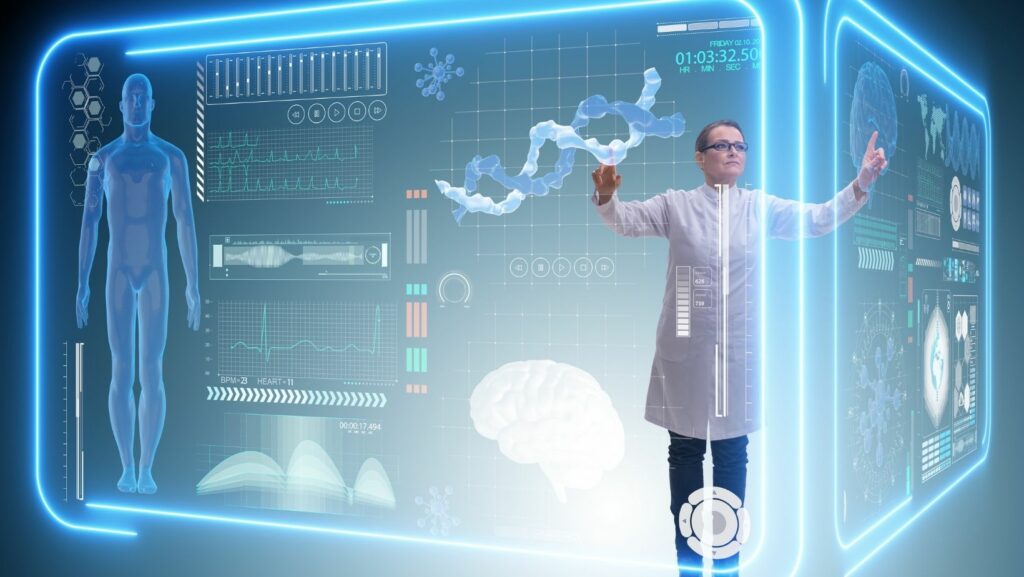Healthcare has embraced artificial intelligence (AI) to revolutionize patient care. From managing medical records to enhancing diagnostic accuracy, AI plays a pivotal role in making healthcare more efficient.
The global AI in the healthcare market is a $19.27 billion industry. One area where AI holds transformative potential is in helping patients stay informed about medications. This particular arena helps ensure that patients understand medication uses, interactions, and side effects. AI based apps that can answer patient queries
Here’s how AI empowers patients to make safer and more informed decisions about the medication they consume.
The Role of AI in Simplifying Medicine Information
The complexity of pharmaceutical information often leaves patients confused or overwhelmed. AI tools are designed to simplify this information, making it easier to comprehend.
AI-driven platforms can analyze a medication’s properties, its approved uses, and potential risks, and present these details in patient-friendly language. This process removes barriers to understanding for individuals without medical expertise, fostering better adherence to prescribed treatments.
Moreover, AI can respond to patients’ specific concerns about their medications. There are now dedicated AI-based apps that can answer patient queries in an easy-to-understand tone. Such tools are also used by pharmacists who need assistance to better understand a medicine’s use and potential risks.
The Need for Real-Time Updates in Medication Information
The global pharmaceutical industry saw revenues totaling around $1.6 trillion in 2023. Hence, it’s easy to say that the pharmaceutical landscape is ever-evolving, with new medications entering the market and existing ones undergoing regulatory changes. For AI to remain a reliable source of medical information, it must stay updated in real time.
Patients rely on the accuracy of this information, particularly when it concerns newly discovered side effects or contraindications that could impact their health. AI systems are equipped to scan and integrate data from a variety of sources, such as medical journals, regulatory announcements, and clinical trial updates.

By processing this information rapidly, AI ensures that patients and healthcare professionals alike have access to the most current knowledge about a medication. This capability safeguards patients and enhances the credibility of AI tools in the healthcare domain.
The Importance of Oversight in AI-Driven Medication Information
While AI excels in processing and delivering information, human oversight remains essential to maintain its accuracy and reliability.
Licensed pharmacists, with their extensive training and clinical expertise, play a vital role in ensuring AI systems function effectively. Professionals who have completed an online Doctor of Pharmacy program or hold an online PharmD degree bring a deep understanding of medication interactions.
According to the University of Findlay, such a degree helps pharmacists gain hands-on experience in advanced pharmacy practices. Through their involvement, these degree holders can help validate the data AI provides, correcting errors and ensuring it aligns with best practices in medicine.
AI’s Role in Promoting Medication Safety
Medical errors are a big deal in healthcare and can have serious consequences for patients. Believe it or not, they’ve become such a widespread issue that they’re now considered a major public health concern.
Medical errors actually rank as the third leading cause of death in the US. A lot of these errors may happen due to a lack of medication safety. AI-powered platforms act as safeguards, identifying potential risks before they materialize.
For instance, AI can cross-check a patient’s medication list for harmful interactions or flag incorrect dosages prescribed by mistake. These tools offer an added layer of protection that complements the vigilance of healthcare providers.
Beyond preventing errors, AI also supports patients in understanding how to use their medications safely. Interactive virtual assistants, often integrated into mobile apps, provide step-by-step instructions on proper administration, storage, and disposal.
Enhancing Patient Engagement Through AI
Keeping patients engaged in their treatment is key to achieving positive outcomes. AI-driven tools not only provide information but also encourage active participation in healthcare decisions.

For example, conversational AI systems can answer patients’ questions about their prescriptions, addressing concerns in real-time. This two-way interaction builds trust and ensures that patients feel supported throughout their treatment journey.
Moreover, AI can deliver reminders and educational content tailored to each patient’s needs. These systems can suggest lifestyle changes that complement medication use or alert patients when it’s time to schedule follow-up appointments.
By integrating seamlessly into patients’ lives, AI fosters a more proactive approach to health management.
Frequently Asked Questions (FAQs)
How Can AI Be Used To Improve Patient Care?
AI enhances patient care by analyzing medical data to identify patterns, predict health issues, and personalize treatments. It supports early diagnosis through tools like imaging analysis and symptom prediction models. AI-powered chatbots and virtual assistants improve accessibility and efficiency by addressing routine inquiries.
How Can AI Be Used In The Field Of Medicine Discovery?
AI speeds up medicine discovery by crunching massive amounts of data to spot potential medication candidates and even predict how well they might work. Machine learning models simulate medicine interactions and optimize compound designs, reducing trial-and-error processes. It also streamlines clinical trial recruitment by matching suitable participants. This efficiency shortens development timelines and lowers costs.
How Can AI Systems Contribute To The Development Of Patient-Specific Treatments?
AI tailors treatments by analyzing genetic, lifestyle, and medical data unique to each patient. Predictive algorithms suggest therapies most likely to succeed, enhancing precision medicine. AI also aids in designing patient-specific medication regimens or medical devices.
AI is shaking things up when it comes to how patients get their medication info. It’s making those overly complicated details easier to understand and even dishing out tips tailored for patients. In short, AI is putting the power back in your hands to take charge of your health like never before.
By blending cutting-edge technology with human expertise, the healthcare industry can create a future where patients are better informed in their treatment journeys.



